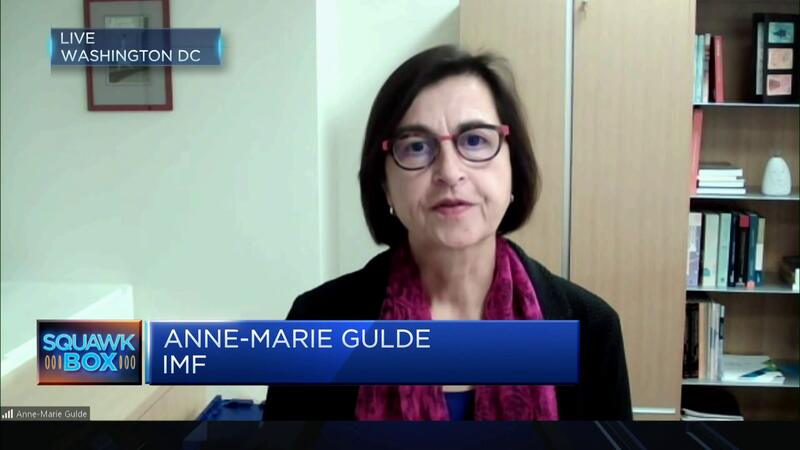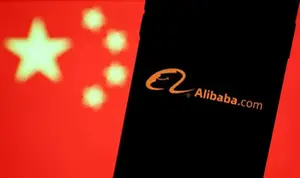
China is no longer just any emerging market — it has become its own beast
BEIJING — China is no longer just another emerging market play. Now, the country is becoming its own beast — with all the risks and rewards that come with being a world power.
There's greater caution on China this year, as stringent Covid controls drag on and as growth takes a backseat. Analysts note longer-term trends of China's reduced dependency on foreign investment and intellectual property.
That's all on top of Beijing's crackdown on the internet tech sector and real estate developers in the last two years.
Foreign investors are reacting. The share of Chinese stocks in the benchmark MSCI emerging markets index fell from a peak of 43.2% in October 2020 to 32% in July 2022, Morgan Stanley analysts pointed out.
In the meantime, exchange-traded funds tracking emerging markets — but not China — saw assets under management surge from $247 million at the end of 2020 to $2.85 billion as of July 2022, the report said.
WisdomTree last month became the latest firm to launch an emerging markets ex-China fund, following Goldman Sachs earlier in the year.
This mood has shifted from China being one of the most attractive places to invest in the world ... to the fact that the rivalry [with the U.S.] has introduced an uncertainty element and quite a substantial risk elementKetan Patelco-founder and CEO of Greater Pacific Capital
"We definitely hear clients [saying], maybe given the current political environment, maybe dial[ing] down China could be a better strategy," said Liqian Ren, leader of quantitative investment at WisdomTree.
So far, she said, the number of clients excluding China isn't "overwhelming," and by metrics such as per capita GDP the country remains an emerging market.
The category includes Brazil and South Korea and refers to economies with generally faster growth than developed economies such as the U.S. — and more risk.
Rivalry with the U.S.
But what Ren and others say is different for China now is that the U.S. has named it a strategic competitor. Most recently, the Biden administration further restricted China's ability to use U.S. tech for developing advanced semiconductors.
"This mood has shifted from China being one of the most attractive places to invest in the world and how much certainty there was perceived to be in policy, to the fact that the rivalry [with the U.S.] has introduced an uncertainty element and quite a substantial risk element," Ketan Patel, co-founder and CEO of Greater Pacific Capital, said last month.
People aren't going to ignore China, "but the level of excitement has changed," said Patel, former head of Goldman Sachs' Strategic Group.

And rather than seeing China as a developing country — which it is especially in rural areas — foreign investors would see it more "as a great power opportunity," Patel said. He also chairs the Force for Good initiative, which promotes investment as a way to achieve sustainable development worldwide.
Beijing is also presenting itself as a great power.
Chinese President Xi Jinping has pushed the country not only to be self-sufficient in tech and energy, but lead other nations with alternative — if not competing — systems for finance, navigation and international relations. Those include a Global Development Initiative and Global Security Initiative.
Within China, the government under Xi has increased its role in the economy.
The share of state-owned enterprises in the top 10 Chinese companies rose by 3.6 percentage points between 2020 and 2021, despite an overall decline of 10 percentage points over the last decade, Rhodium Group said. In all, the report said those state businesses account for more than 40% of the top 10 — well above the open-economy average of 2%.
"We also cannot accurately measure informal barriers to market competition—for example, informal discrimination against foreign and private companies, industrial policies, or the presence of Communist Party committees," the report said.
New party office rules
The growing role of the Chinese Communist Party under Xi is now a greater concern for finance — an industry in which China has recently allowed more foreign ownership.
Chinese law has long required internal party committees — for companies with at least three party members. However, enforcement began to pick up only after 2012, according to the Center for Strategic and International Studies.
An internal party committee, or office, gathers together a company's employees who are members of the Communist Party of China. They may then hold events such as studying "Xi thought."
New rules from the China Securities Regulatory Commission that took effect in June say securities investment funds in China need to set up an internal party office.
When asked about the new rules, the securities regulator said they are in line with corporate governance principles and Chinese law, and there's "no need to worry at all" about data security, according to a CNBC translation of the Chinese.
It's unclear what role such party offices play in business operations, said Daniel Celeghin earlier this year, when he was managing partner at consulting firm Indefi.
But before the pandemic, he said, at least one large Western asset manager decided not to set up a subsidiary in China because once they learned establishing a party cell would be required, "that overcame all of the potential commercial gains."
China's appeal
Funds such as a few from WisdomTree offer ways to invest in emerging markets without putting investors' money into state-owned enterprises.
In China, the market capitalization of non-state-owned companies has grown to about 47%, up from 35% a decade ago, according to Louis Luo, investment director of multi-asset at Abrdn.
The upcoming Chinese Communist Party congress will be more of a "confirmation of what's been in place," Luo said, adding that he expects a return of some policies that are more market-friendly. Sectors he's betting on for the long term include consumption, green tech and wealth management.
Even with slower growth, China's future attractiveness may lie in just offering an alternative to investing in other countries.
Global markets have been roiled this year by the U.S. Federal Reserve and other central banks' attempts to curb inflation by aggressively hiking interest rates. But the People's Bank of China has been going in the opposite direction.
A fundamental difference between emerging markets and developed ones is how independently they can make their monetary policy from the United States, Luo said. "From that point of view, I think China stands up."
Source: https://www.cnbc.com/2022/10/14/china-is-no-longer-just-any-emerging-market.html






